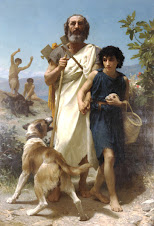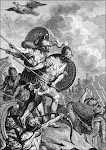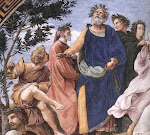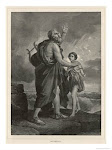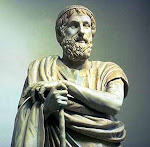
My poem the Iliad is about a war between the Greeks and the Trojans because the king Agammemnon has not returned the daughter of the preist of Apollo causing a plague over Greek. Achilles confronts the king about the situatution but Agammemnon makes a deal with saying that he will release the girl, only if Achilles gives him Briseis in return. Agamemnon agrees to release this girl if Achilles gives him Briseis in return. This collision then leads to a calamity of chaos and martyrdom that even the gods have yet to see. This is the Iliad.
The Odyssey

My creation , the Odyssey, is about a stranded Greek hero Odysseus who has still to return to his kingdom in Ithaca. Back in Ithaca, his kingdom and his family are being invaded and targeted by an assasin. Odysseus is still alive but is imprisoned by Calypso (a beautiful nymph) while the gods of Mt. Olympus debate Odysseus's future. The gods collide in pandemonium as some are in favor of Odysseus's situation where as some are not quite pleased with him. This is the Odyssey.
